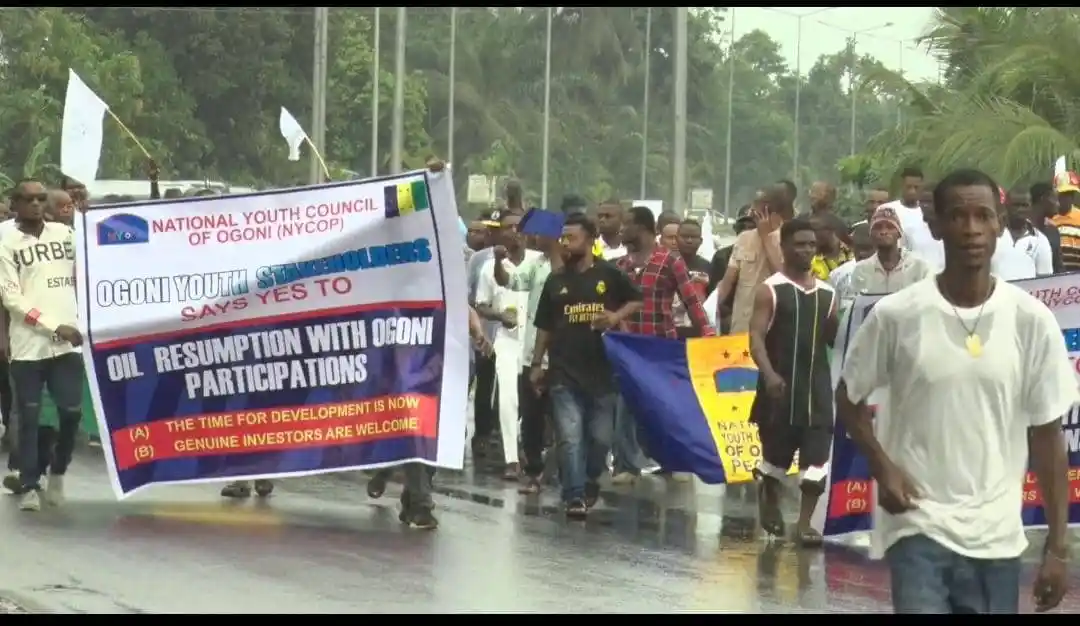
A congress organized to discuss the resumption of oil production in Ogoniland was abruptly halted as protesters stormed the venue in Bori, the traditional headquarters of the Ogoni people. The event, reportedly orchestrated by a group working in collaboration with the Office of the National Security Adviser (NSA), Nuhu Ribadu, was met with resistance from demonstrators who voiced concerns over the exclusion of key stakeholders.
Carrying placards with inscriptions such as “Ledum Mitee and Ribadu, Leave Ogoni Alone,” “On Ogoni Development Authority We Stand,” and “Exonerate Ken Saro-Wiwa,” the protesters disrupted the meeting, forcing its cancellation despite security efforts to restore order. They accused the organizers of sidelining significant groups, particularly the Movement for the Survival of the Ogoni People (MOSOP), a body that has historically championed the rights of the Ogoni people.
The protest comes on the heels of a recent visit by a delegation led by Rivers State Governor, Siminalayi Fubara, to President Bola Ahmed Tinubu, where discussions on the potential resumption of oil production in Ogoniland took place. Following the meeting, the president mandated the NSA to ensure that all Ogoni stakeholders were part of the process. However, the initiative has sparked controversy, with multiple interest groups voicing concerns over its implementation.
MOSOP, through its president, Fegalo Nsuke, criticized the exclusion of the organization, warning that leaving out a key voice in the Ogoni struggle could erode trust and escalate tensions. He expressed concern over the hurried nature of the discussions, emphasizing the need for a more inclusive approach to prevent further unrest.
Adding to the growing dissent, the Ken Saro-Wiwa Exoneration Campaign—a coalition of civil society organizations—demanded transparency and fairness in the negotiation process. The coalition reiterated its call for the exoneration of the nine Ogoni activists, including environmentalist Ken Saro-Wiwa, who were executed in 1995 after a controversial trial. The group also urged the Nigerian government to establish an investigative panel to uncover the circumstances surrounding the killing of four Ogoni leaders in 1994.
The opposition to the oil resumption plan extends beyond Nigeria, with Ogoni communities in the United States and Canada denouncing the move and calling for justice for those who lost their lives in the struggle.
The latest protest presents a significant setback to President Tinubu’s efforts to broker peace and facilitate oil production in Ogoniland, highlighting the deep-seated grievances that remain unresolved.



